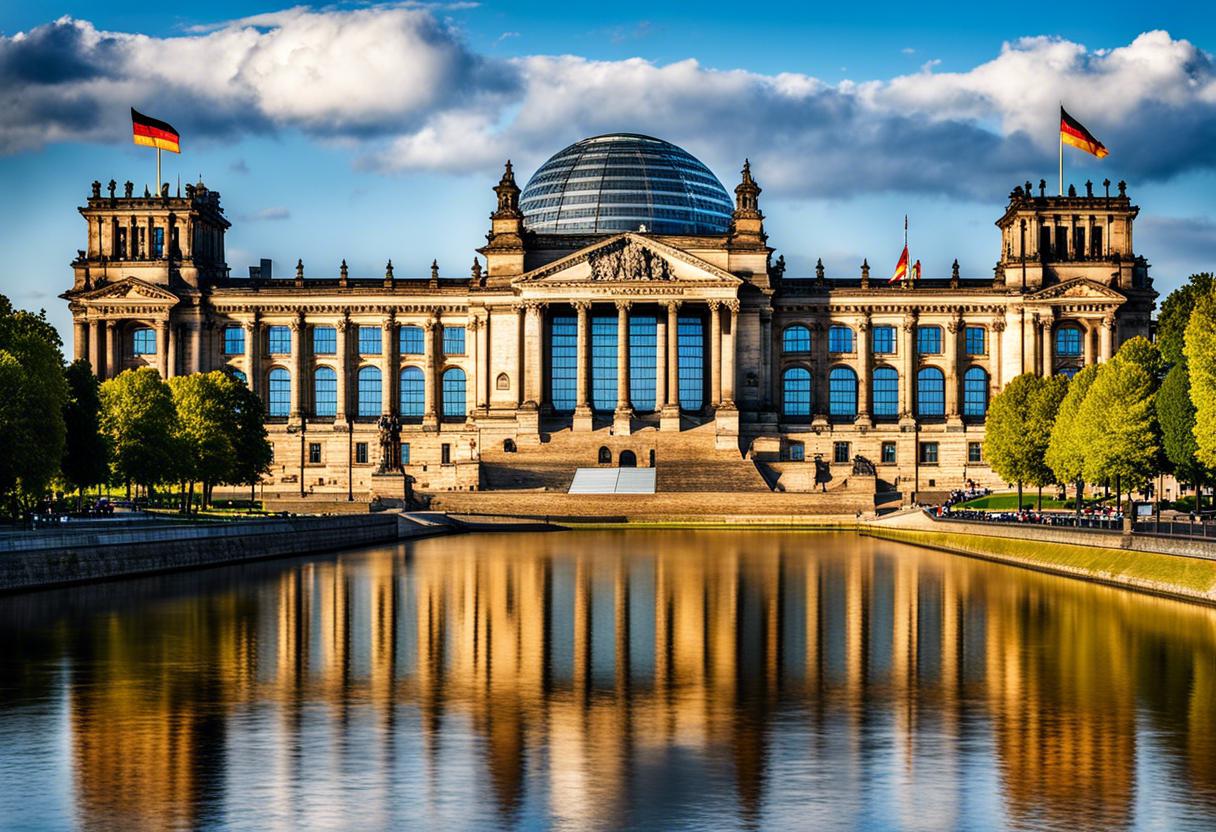Close to half a year following the 7th October assault by Hamas, Germany is caught in an uncomfortable position – politically and culturally – due to the ongoing hostage situation in Israel, as well as Gaza’s impending famine danger. During a joint appearance with Israel’s president Benjamin Netanyahu in Jerusalem last Sunday, Chancellor Olaf Scholz voiced his concern about the unresolved crisis in Gaza and its astronomical expenses. He spoke in English, asserting that allowing Palestinians to face the threat of starvation was non-negotiable.
His comment stirred quite a debate during Monday’s government press briefing, despite the government refuting that Scholz had offloaded the blame of starvation on Palestinians. Foreign Minister Annalena Baerbock further clarified Germany’s position; while recognising the nation’s moral obligation stemming from the Holocaust and censure for an alleged bias towards Israel, she also affirmed in the Bundestag, Israel’s right to self-defence. Simultaneously, she argued the importance of upholding humanitarian international law, citing it as a key lesson from Germany’s past.
In the face of legal implications and potential famine, Baerbock voiced an Israeli hostage’s parent’s sentiment during her speech in the Bundestag to illustrate her approach to the Israel-Gaza crisis, “The ordeal continues… if another mother in Gaza loses their child.” Following six trips to the beleaguered region since 7th October and a seventh imminent trip, Germany has granted an extra €165 million in humanitarian aid and participated in last week’s supply air drops. However, officials acknowledge that these efforts are not enough. Each plane can deliver only six pallets of aid versus a truck’s 22, and currently, only around 100 out of the required 500 trucks are managing to deliver aid to Gaza daily.
Despite Berlin’s amplified public criticism, Germany has yet to support EU foreign policy chief Josep Borrell’s claim that “Israel is provoking famine” and using starvation as a weapon of war in Gaza. Much like the Chancellor, Baerbock refrained from directly attributing blame to Israel in her Bundestag comments. Instead, she expressed the need to halt death and starvation.
Despite Germany heightening its humanitarian aid to Palestinians since October, it simultaneously increased arms exports to Israel by ten times, potentially initiating legal ramifications. Accusations of “facilitating” genocide in Gaza have been lodged against Germany by Nicaragua at the International Court of Justice, based on the 1948 convention. Likewise, a complaint has been filed against Berlin by lawyers representing a Gazan household, alleging that Germany is not preventing genocide by Israel in Gaza in contravention of its “clear obligation”.
The German Chancellor, Scholz, faced vocal protests at the Leipzig Book Fair recently, with attendees voicing pro-Palestinian sentiments. This display of public dissatisfaction underscores the strains that Germany’s cultural domain is grappling with, following the repercussions of events on October 7th.
Prominent instances of anti-Semitism at major cultural events like an art show and the Berlin film festival have led to the exertion of pressure on both state and federal cultural ministers. They have been urged, including by the Israel embassy, to introduce a so-called “anti-anti-Semitism clause”. The ministers agreed, at a recent meeting, to establish “legally acceptable regulations to ensure that anti-Semitic, racist or other degrading projects are not supported”. However, the way to attain this objective is uncertain as official definition of anti-Semitism is yet to be approved, with two international definitions being considered currently.
The ministers have been provided with a legal opinion from a distinguished constitutional lawyer of Germany, indicating that while such conditions for state arts funding are technically feasible, they are neither practicable nor recommended. Professor Christoph Möllers suggests this approach would disrupt the principle of faith that exists between state financial supporters and artists and would require the creation of oversight structures, vulnerable to misuse and potential political interference in public art institutions.
German culture officials are caught in a challenging situation to either support the proposed “anti-anti-Semitism clauses”, or to stand up for artistic freedom. A state cultural ministry official expressed their reluctance towards both the clauses and checking every cultural output, acknowledging the impossibility of such actions but noting that no one is willing to publicly voice this viewpoint.
The world reputation of Germany is suffering while its cultural leaders ignore the situation. In recent events, Mohamed Abla, an established visual artist from Egypt, controversially returned a recognition he received from the Goethe Institute. His protest gestures towards perceived hypocrisy by the German government, as he stated, “It’s paradoxical for Germany to preach about fairness and equality while disregarding Palestinian issues and assisting in arming Israel.”

